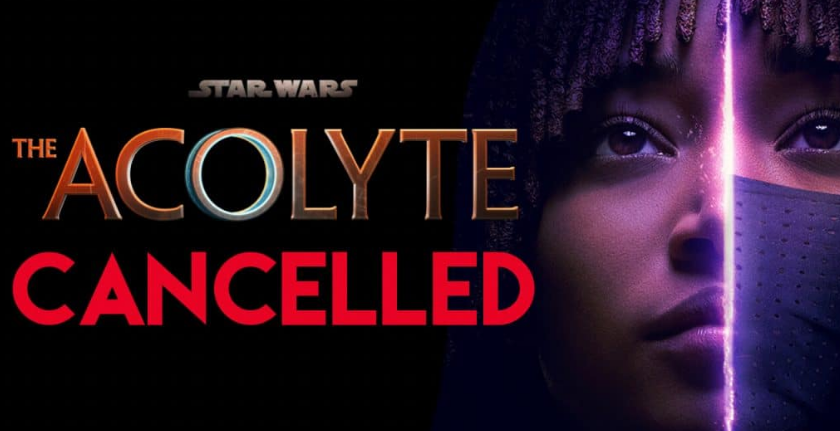Ladies and gentlemen, it looks like the force wasn’t strong enough for Disney+’s “Star Wars: The Acolyte.”
According to recent reports, the streaming giant has decided to cancel the series after just one season. This news comes as a surprise, especially since the show was initially met with excitement and high expectations, but it struggled to maintain momentum after its debut.
So, what went wrong? Let’s break it down. “The Acolyte,” helmed by showrunner Leslye Headland, was a bold and ambitious project from the start. Headland promised a fresh take on the “Star Wars” universe, focusing on the Sith, the dark side of the Force, and bringing a strong female-centric narrative with a clear infusion of LGBTQ themes. When the series launched on June 4, it seemed to be off to a solid start, racking up 4.8 million views on its first day—a number that had fans and critics alike taking notice.
But as the weeks went by, the excitement began to fade. Despite the early buzz and positive press, the show’s ratings started to dip. By the third week, it had fallen out of the top 10 most-watched shows on Disney+, which isn’t the best sign for a franchise as beloved as “Star Wars.”
While it did manage to claw its way back into the top 10 for the finale, it was with numbers that were reportedly the lowest ever for a “Star Wars” series finale—just 335 million minutes watched.
‘The Acolyte’ Canceled: No Season 2 For Disney+’s ‘Star Wars’ Series https://t.co/s8duAdwV3W
— Deadline (@DEADLINE) August 19, 2024
One of the key factors that might have contributed to the show’s struggles was its departure from the familiar “Star Wars” formula. Headland herself mentioned that “The Acolyte” wasn’t going to be like “The Mandalorian” or “Andor,” two shows that have been fan favorites.
Instead, she aimed to explore the Jedi as an institution, delving into their power dynamics and looking at the story from the perspective of the Sith—the “bad guys” of the galaxy. While this concept intrigued some, it seems that it didn’t resonate with the broader audience as much as hoped.
Another aspect that made headlines was Headland’s commitment to incorporating LGBTQ representation into the show. Before the series even aired, she openly discussed how her personal experiences as a queer woman would be reflected in the storyline.
She compared her vision to the animated hit “Frozen,” which she described as “coded queer” and expressed her desire to create something that would speak to young queer audiences in a way that classic “Star Wars” never had. While this approach was applauded by many, it may not have been enough to keep the series afloat in the competitive streaming landscape.

